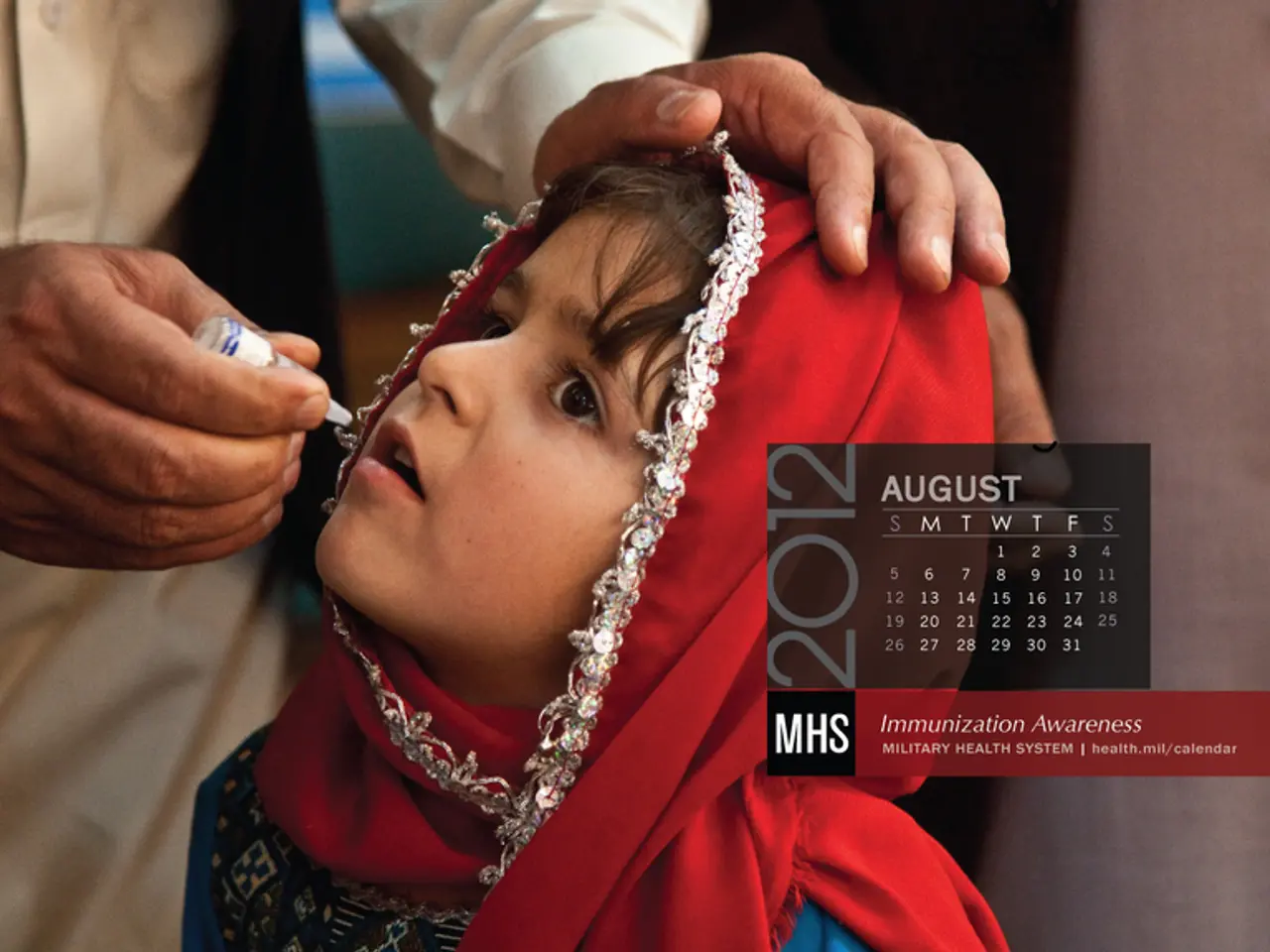Revocation of Emergency Use Authorization for Pfizer's COVID-19 Vaccine in Children Below a Specific Age Considered by FDA
In the ever-evolving landscape of the COVID-19 pandemic, recent policy changes have brought about a significant shift in vaccination recommendations for young children.
The American Academy of Pediatrics (AAP) continues to advocate for routine vaccination in infants and young children, recommending that all children aged 6 months to 23 months receive a COVID-19 vaccine, regardless of prior infection or vaccination status. This stance contrasts with the U.S. Centers for Disease Control and Prevention (CDC), which has shifted to a "shared clinical decision-making" approach, allowing parents and doctors to decide on vaccinating young children, especially those who are healthy and have no risk factors.
This change marks a significant policy divergence, affecting vaccine availability and uptake for young children. Pediatricians, following the AAP, usually offer vaccines broadly, while public clinics may follow CDC guidance, resulting in some regional variation in vaccine access and parental choice.
The CDC's child immunization schedule includes the Moderna shot for children aged 6 months to 4 years who are moderately or severely immunocompromised. However, the CDC has removed the COVID-19 vaccine recommendation for healthy children and pregnant women from its immunization schedule.
The U.S. Food and Drug Administration (FDA) may not renew the Emergency Use Authorization for the Pfizer-BioNTech COVID-19 vaccine for children under the age of five, which would make the Pfizer vaccine the only available coronavirus vaccine for young children and potentially pull it from the market. Pfizer is currently in discussions with the FDA to potentially keep the EUA for this age group for the 2025-2026 season.
Rep. Jeff Van Drew, a representative from New Jersey, has expressed a loss of confidence and trust in the CDC vaccine advisory panel. The FDA's decision is not related to the safety and efficacy of the Pfizer vaccine, which continues to demonstrate a favorable profile. However, criticism has been levied at the timing of the decision, with some arguing it is inappropriate to do it this late in the season.
The COVID-19 pandemic ended with the expiration of the federal public health emergency in May 2023. The HHS does not comment on potential, future regulatory changes. The CDC, on the other hand, is prioritizing the restoration of public trust above any specific pro- or anti-vaccine agenda.
In summary, the vaccination landscape for young children has undergone a notable change. Parents and healthcare providers are encouraged to stay informed and discuss any concerns with their healthcare providers to make informed decisions about vaccination.
| Age Group | AAP Recommendation | CDC Policy (2025) | |---------------------|---------------------------------------------|----------------------------------------| | 6 months – 23 months | COVID-19 vaccine recommended for all | Shared decision-making for healthy kids| | 2 years – 18 years | Vaccine recommended, especially if high risk or unvaccinated | Vaccine recommended mainly for high risk or unvaccinated children | | Adults (18+) | Recommended for those at risk or in congregate settings | Same as AAP for risk groups, optional otherwise |





